Before I tell you where the latrine project stands, I want to say two things. Firstly, I would like to take this opportunity to thank everyone who donated towards this project. Many hands make for light work and with your donation, the work has been going unbelievably well. Secondly, this blog post is graphic. I do not intend to hold back punches because the donors deserve to know reality here, unfiltered, and the impact their support is making. For those with weak stomachs, consider yourselves warned.
Let’s start from the beginning shall we? Patrick Ojok is the director of the Gulu Disabled Persons Union (GDPU). He identified Awach Central Primary School as school in critical need of a modern latrine before I ever landed in Uganda. 991 students are currently enrolled at Awach; over 70 of these students live with some form of disability. I knew all this before I went to visit the school, but what I found when I arrived made my heart sink. All these students, boys and girls, were sharing just one latrine.
I will attempt to describe my first encounter with this latrine, but words alone cannot convey the sensory overload I experienced.
When the head teacher escorted my team to the latrine, I could smell it before I ever saw it. The smell was horrendous. To anyone in Maryland and DC who has ever driven past Blue Plains in the summer, this was a hundred times worse. As we approached, you could hear the cacophony of flies buzzing. I have never seen that many flies in one place. When I opened the door to the first stall, thousands of flies and the smell of decades of human waste attacked me. I held my nose, but that offered little reprieve. I walked into the stall where more flies were escaping from the toilet hole like smoke from a fire. I could not believe it.
This latrine was past full, on-the-verge of overflowing full. There were maybe six inches from the hole to the top of the waste. One heavy rain is all it would take to turn this latrine into a cholera outbreak. My eyes were watering, a result of the ungodly odor and the realization that one new latrine was just a drop in the ocean. I went back to my office deflated. What good is one latrine for a school with that many students? Was I just wasting my time here? Like bring a glass of water to a forest fire.
My team identified a contractor who agreed to dig the new latrine. His name is Charles Kennedy Akena and he actually studied at Awach Central Primary School when he was a child. He sympathized with the situation so he offered to do the work for less than our original budget. With the contractor ready and willing the next step was to engage the parents.
Allow me a moment for a slight tangent: one of big challenges in international development is community buy-in also known as engagement. These parents are farmers. They work from sun up to sundown just to get by. A missed day in working the fields could result in a day without food on the table. This dynamic means most meetings start late, few people come, general apathy, etc. It’s frustrating. I have grown accustomed to showing up thirty minutes late to such meetings because I am normally still the first to arrive, but not at Awach.
At Awach 127 parents came to the meeting, on time! When I asked their help to dig the new latrine pit, they didn’t flinch. One by one they stood up to say things like “Chris I will see you tomorrow morning with my shovel!” Or “God Bless you, I will help you dig” or my favorite from 82-year-old Aderyo Rosalba, “I am coming tomorrow at sunrise to help you dig the latrine for our children!” And sure enough, at the crack of dawn the parents came in droves to help dig. The schedule stated the digging would take four days. “Silly American” said one parent, “We will finish it in one!” In one day, over 80 parents came to dig a pit that was 24ft X 6ft X 10ft. According to my rough math, that equals about 1440 cubic feet which can hold roughly 10,772 gallons. Trust me, that’s impressive.
The following day the contractor and the latrine began to take shape. I hate to jinx myself, but we are actually ahead of schedule. I feel blessed to have such a committed team and community behind our project. The vision of latrine is materializing right before my eyes.
Here a few pictures to show to progress that has been made in just three weeks
But it isn’t all rainbows and butterflies. Northern Uganda is still recovering from decades of strife. Behind the smiling faces of the people is a level of hurt I will never fully comprehend. During one of the days of construction, ten feet away from a classroom I found a live bullet. A tangible reminder that Awach was at the epicenter of violence that saw tens of thousands people killed and children ripped from their parents’ arms, forced to fight and kill their own families. Years of abuse and violence have created an entire generation of young adults who are damaged; haunted and traumatized by their past and the things they were forced to do. Everyone here has a story about the insurgency, but those stories are for another time and another blog post.
But I have a tendency to focus on the negatives. Even with the project going so well, the fact remains that one latrine is not enough. My shameless fundraising had raised enough to build the first latrine, but to raise double that amount would take months and I only have weeks. Nevertheless, there is always a way forward. Instead of building new, we decided to reclaim the old.
What does that mean?
Well for starters, we have to drain the pit. My dad used to berate me to never have my hands in my pocket so I tried to help as much as possible. There are few words to describe this work, but I will list a few that came to mind; yuck, gross, nasty, oh my god, disgusting, and ewww. Like I said, this post is not for those with a weak stomach.
After two days of what I imagine hell must be like, the pit was drained and sprayed to kill any flies, maggot, and whatever else remained. I am still fighting to find additional funds to renovate the old structure including retrofitting handrails so that the stands are accessible for students with disabilities.
I am still searching for the funds to do these renovations so if you haven’t already, please consider donating to my GoFundMe page. The donation is tax deductible and each donor will receive a drawing made by a student at Awach Central Primary School along with their picture so you can put a face to the name. Here is the Link. The UN declared sanitization a human right. I intend to defend that right for Awach!
Again thanks to everyone for your continued support. It reminds me that on the more difficult days, there is always a way forward. I will keep everyone updated as the project continues to take shape. This job may “stink”, but I couldn’t think of a better use of my summer!
To see more pictures of our project, check out my Flickr Page!
Posted By Chris Markomanolakis (Uganda)
Posted Jul 11th, 2018


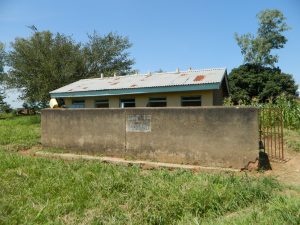
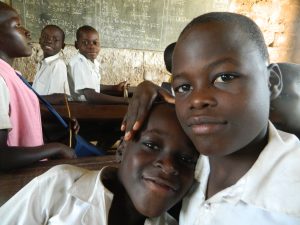
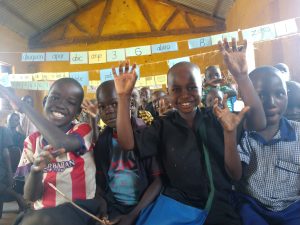
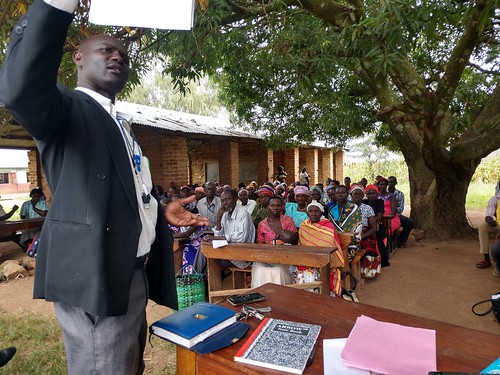
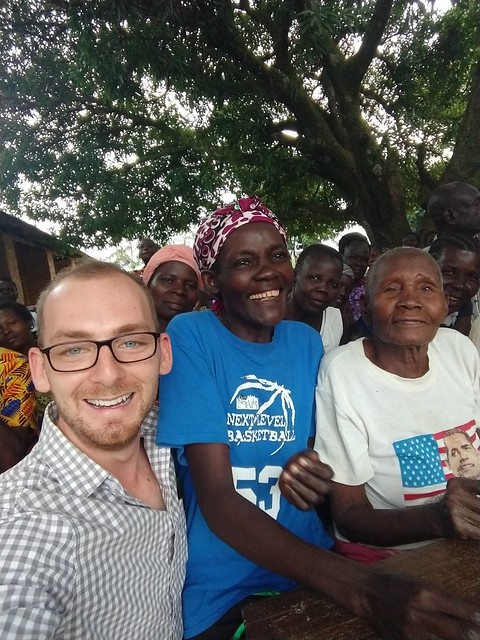
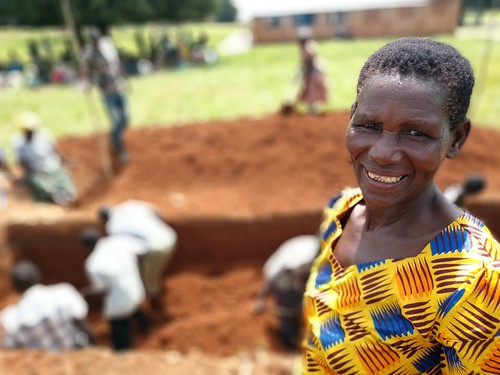
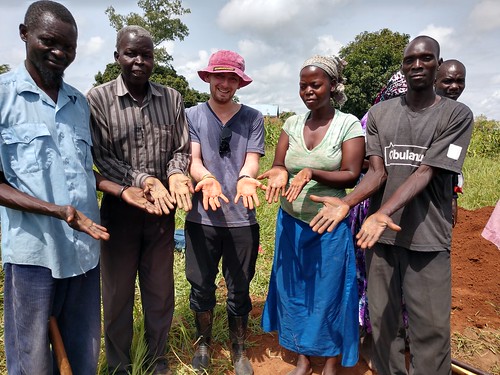
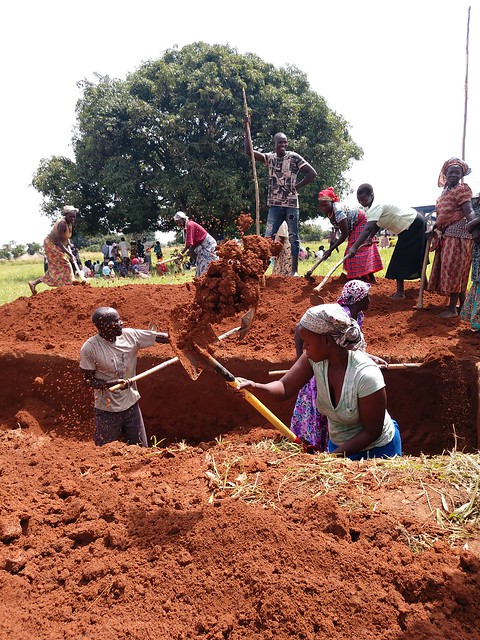
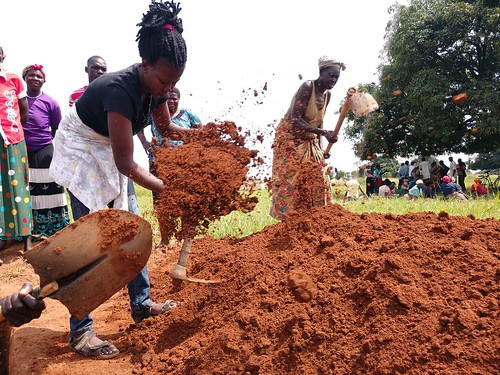
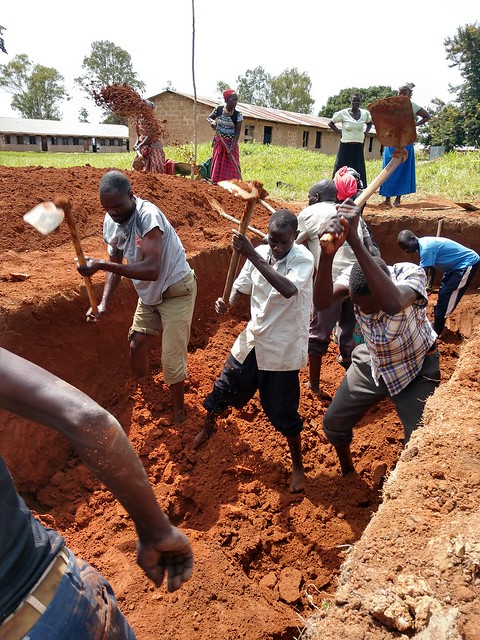
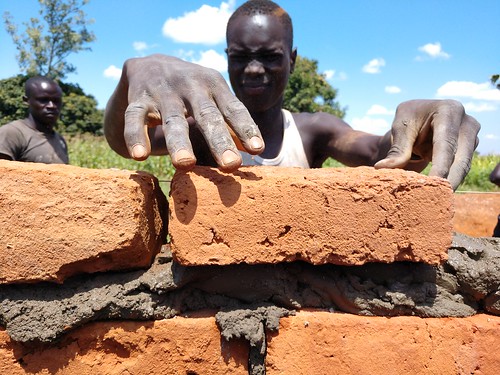
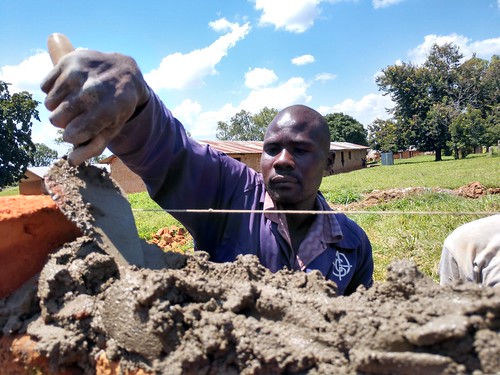
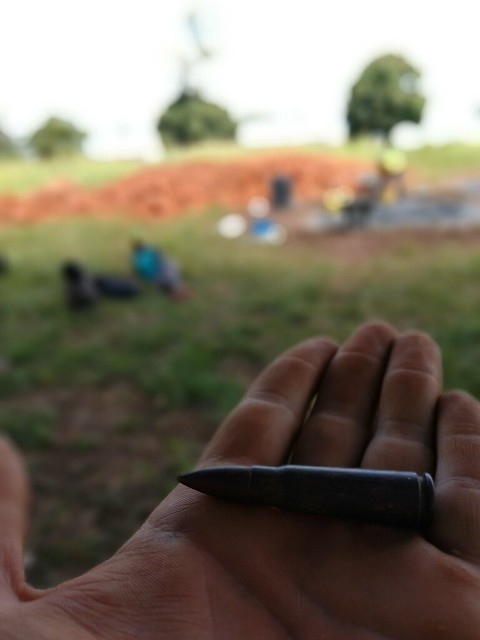
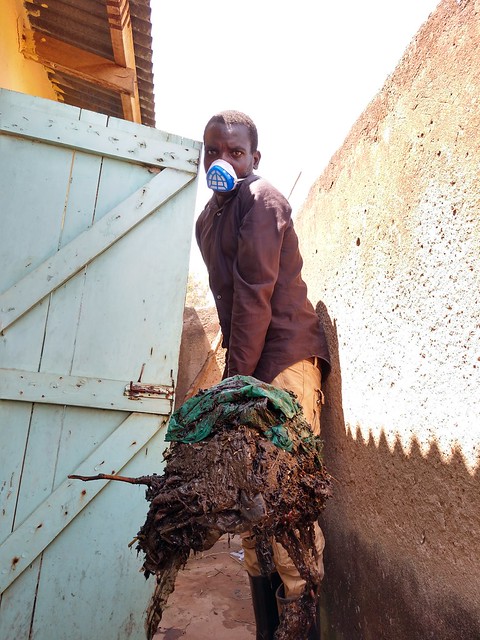
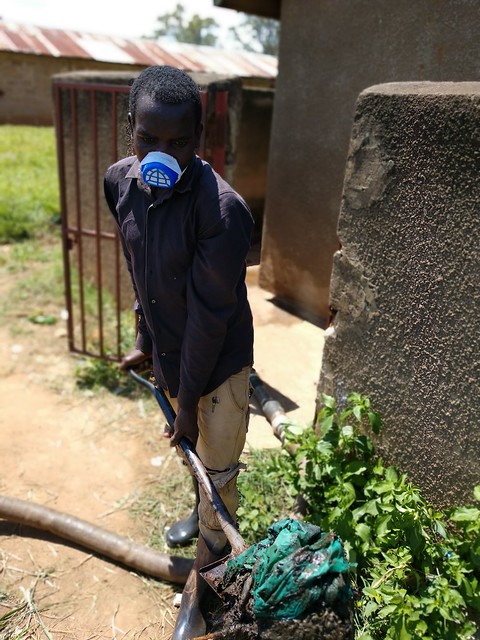
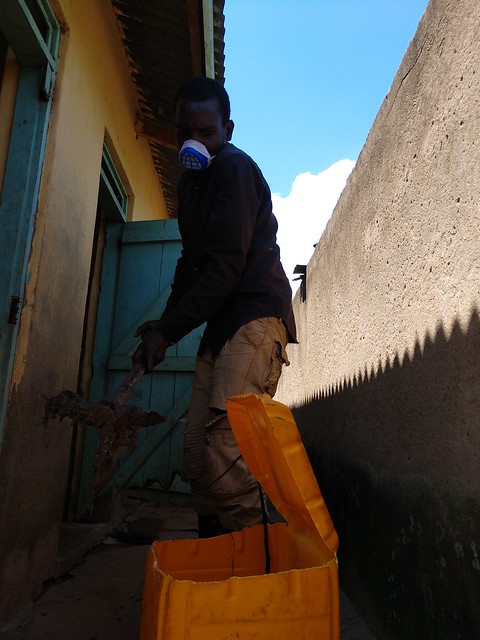
6 Comments
Princia Vas
July 11, 2018
Hi Chris! Great pictures! Thank you for updating us on the project through your post. I look forward to learning more about the progress of the project during your time in Gulu, Uganda 🙂 Good luck and amazing work!!
Karen
July 11, 2018
One of the things I love the most about this project is the community involvement – you show that so well on this post, while also reminding us of what these family members have been through…I would love to hear some of their stories of resilience. Your pictures make this post even more compelling – well done!
Samantha
July 12, 2018
Chris- I am overjoyed to hear about the community support! I appreciate your honest remarks, it is important to understand what the type of enviroment the kids and community as a whole are enduring. ThoughI love seeing the smiles through your pictures, it just as vital to hear about the “not-so-glamourous” side of reality. It is a reminder to us all to keep on fighting for human rights and that this injustice IS happening. Thanks again Chris, keep us updated!
Corinne Cummings
July 12, 2018
Hey Chris. I am thrilled–you included a lot of priceless quotes, particularly the one from 82-year-old Aderyo. This blog post will make for fantastic material for AP’s next blog digest. Keep it coming please. I agree with Karen, this project that you are undertaking at Awach revolves around a great deal of community involvement and you make this notion come to life in your blog post with all the photos and quotes from the participants building the latrine. You should be proud of all the hard work you are doing this summer, Chris. I look forward to reading your blog posts and tracking your progress. It’s incredible to think of all the projects you have participated in, thus far, in your life abroad. Thank you for the awesome update; glad to hear more about your journey. Until next post, take care. Best wishes, Corinne
Ali
July 16, 2018
Chris, your blog posts are always such a great read! And thank you for sharing with us the reality that these kids face when using the bathroom – it is truly insane what these students have to deal with and you are right, sanitation is a human right. Keep up the awesome work, I look forward to the next update!
Donna J Olson
August 9, 2018
Chris,
Reading how committed these parents were to this project literally brought a tear to my eye, thanks for sharing!